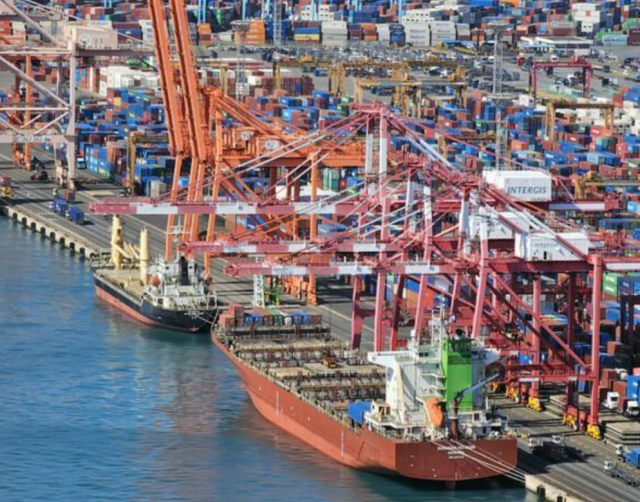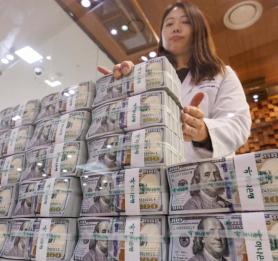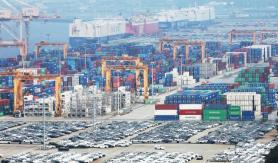
The current account surplus for the month was $9.13 billion, the largest for a July since 2015, according to provisional statistics released by the Bank of Korea on Friday.
Following a deficit of $290 million in April, the nation recorded surpluses of $8.92 billion in May and $12.56 billion in June.
The current account aggregates trade in goods and services between countries, along with capital, labor, and other economic transactions. It is a key indicator of a country’s economic health and includes the goods balance, services balance, primary income balance, and secondary income balance.
From January to July, the cumulative current account surplus reached $47.17 billion, a sharp increase from the $5.26 billion posted during the same period last year.
For July, the goods balance recorded a surplus of $8.49 billion, maintaining a surplus for 16 consecutive months since April of last year. Although the surplus was smaller than June's $11.74 billion, it was larger compared to $4.43 billion in July of the previous year. Exports totaled $58.63 billion, up 16.7 percent year-over-year, continuing from last October and marking ten consecutive months of growth.
Among exported items, semiconductors saw a 50.1 percent increase, information and communication equipment grew by 29.8 percent, petroleum products rose by 16.8 percent, and machinery and precision instruments increased by 14.3 percent. By region, exports to Southeast Asia were up 27.4 percent, China by 14.9 percent, Japan by 10 percent, and the U.S. by 9.3 percent, while exports of passenger cars declined by 8.9 percent.
Imports also increased by 9.4 percent, reaching $50.14 billion. Imports of raw materials such as petroleum products grew by 37.9 percent, natural gas by 23.5 percent, and crude oil by 16.1 percent, with a total increase of 9.5 percent. Imports of capital goods, including transportation equipment, saw a 121.1 percent increase, semiconductors rose by 16.3 percent, and precision instruments grew by 15.2 percent, totaling an increase of 11.9 percent. Imports of consumer goods, including passenger cars and home appliances, rose by 10.7 percent.
The services balance recorded a deficit of $2.38 billion. While this was similar to the previous year’s deficit of $2.57 billion, it was larger compared to the previous month’s deficit of $1.6 billion. The travel balance showed a deficit of $1.26 billion, which widened due to an increase in domestic travelers going abroad compared to a $900 million deficit in June.
The primary income balance surplus increased from $2.71 billion in June to $3.15 billion in July. The surplus from dividend income also rose from $2.34 billion to $2.79 billion due to reduced dividend payments to foreign investors.
The financial account net assets, which are assets minus liabilities, grew by $11.03 billion in July. Direct investment saw an increase in domestic investment abroad by $4.33 billion and foreign investment in Korea by $2.99 billion. In securities investment, domestic investment abroad, particularly in stocks, rose by $10.11 billion, and foreign investment in Korea also increased by $3.92 billion.
Copyright ⓒ Aju Press All rights reserved.




